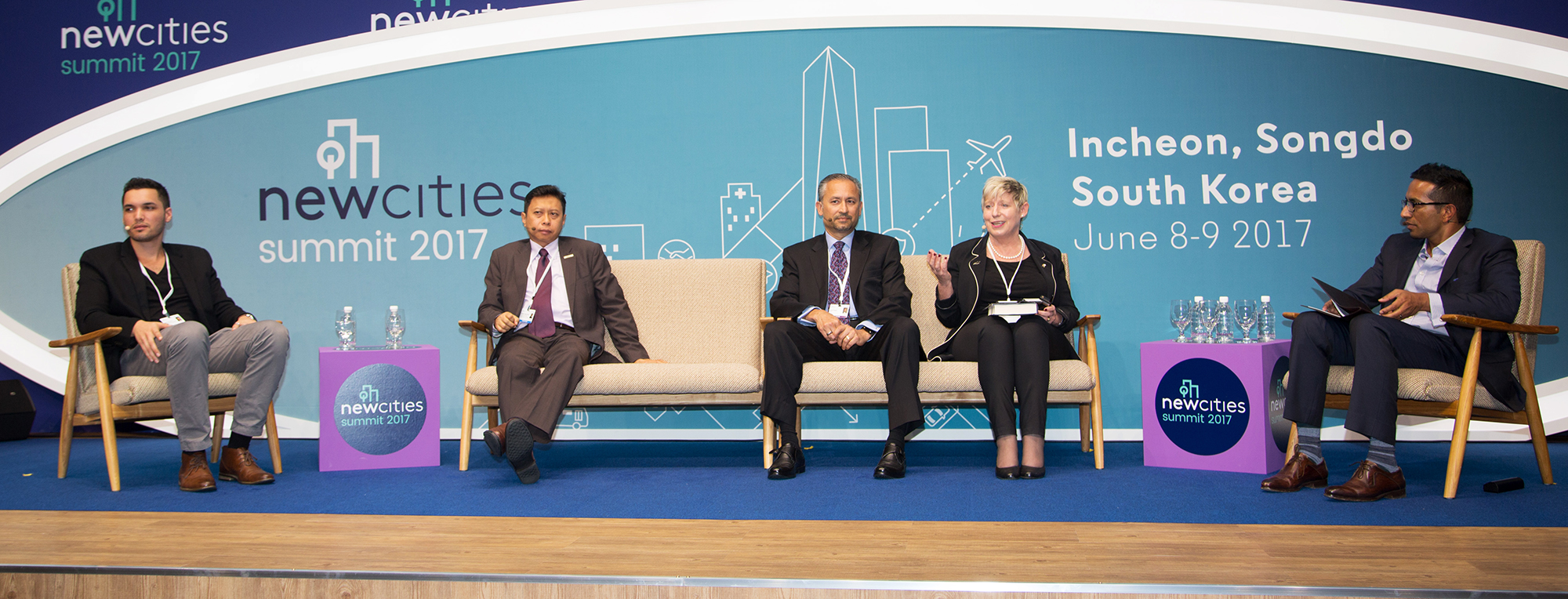
Integrating Flexibility and Resilience Into the Heart of Cities
juillet 19, 2017 — Uncategorized
This post is part of our Thriving Cities discussion series, following the sixth edition of the NewCities Summit in Incheon Songdo, South Korea in June 2017.
City governments and public service providers must be able to efficiently meet the ever-changing needs of their citizens, whether it is a sudden, new phenomenon or a gradual trend. How can adaptability be built into traditional city services? Who is responsible for these services?
Panel moderator Arvind Satyam, Managing Director of Global Business Development at Smart+Connected Communities at Cisco, opened the discussion by sharing the Rockefeller Foundation’s definition for resilience: ‘‘the capacity of individuals, communities, institutions, business, and systems within a city to survive, adapt, and grow no matter what kinds of chronic stresses and acute shocks they experience.’’
The Mayor of Christchurch, New Zealand, Lianne Dalziel, shared the remarkable case of her own city. Christchurch experienced a severe earthquake, part of a series of quakes in 2010 and 2011, which took the lives of 185 people. “We emerged from what was a tragedy with far more flexible and resilient city services than we had before. With disaster also comes opportunity,” she said. Her pointed question to the panel and to the audience was how can we drive change without the need for disaster?
“Resilience starts with people. It really is a matter of policy, it’s a matter of design, it’s a matter of forecasting,” said Rahul Gupta, Principal of Capital Projects & Infrastructure at PwC. The panelists agreed that local communities are the driving source of resilience on any scale. To empower them is to increase city-wide resilience. Technology allows city administrators to empower citizens with information and knowledge, while it also allows citizens to provide administrators with instant feedback on city projects and services. As Dalziel mentioned, this two-way communication will make governance more challenging, but more worthwhile.
Devin de Vries, Co-founder of Cape Town-based WhereIsMyTransport, shared his insights on the countries he works with in Africa which tend to be “resource rich but information poor.” He is using technology to make an informal public transportation network accessible to the community. To gather this information, he turns to the community, using crowdsourcing methods to work towards “better frameworks around the democratizing of information.”
Founded in 2005, the city of Iskandar, Malaysia is building a special economic zone that will grow to become three time the size of Singapore. Khaidzir Abdul Rasip, Senior Vice President of the Urban Observatory at the Iskandar Regional Development Authority said: ‘‘Resilience needs to be thought of at the regional level. In order to be resilient, our city looks at the capacity of the whole region. We look at the thresholds and ceilings carried by the region.”